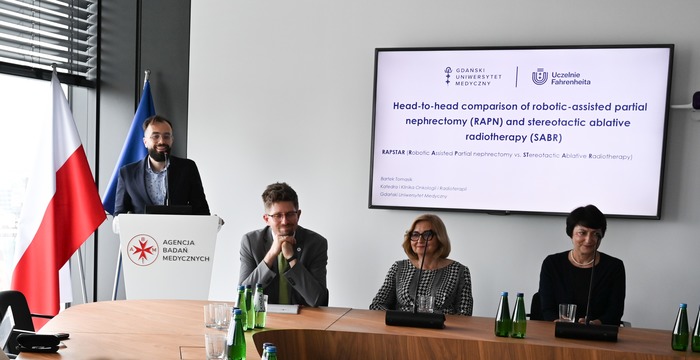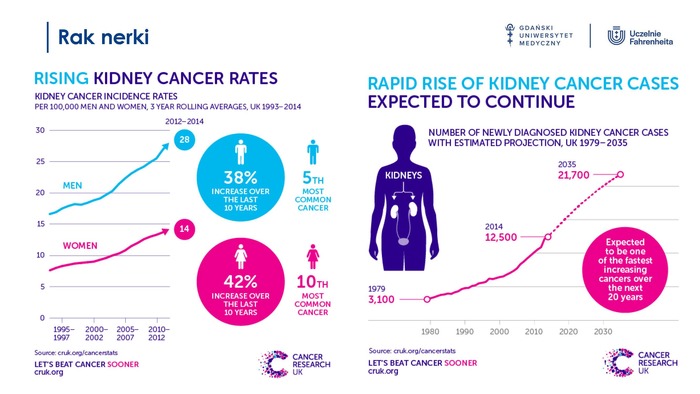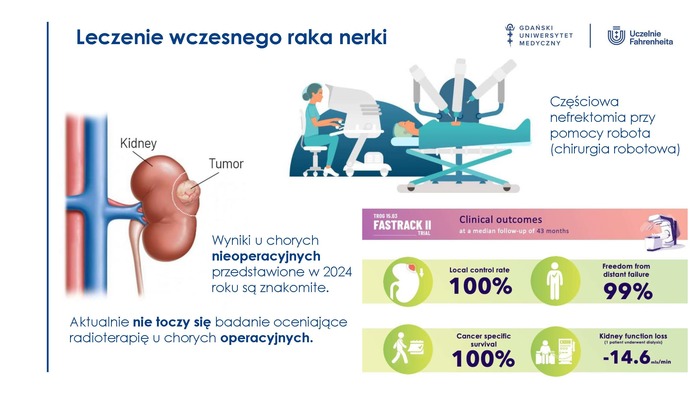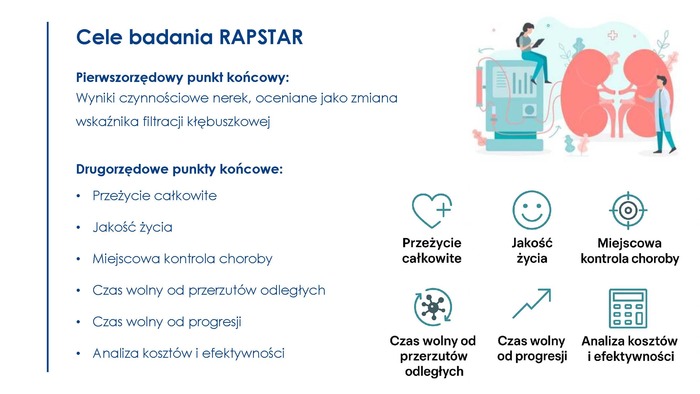Bartłomiej Tomasik, M.D., Ph.D. awarded the MRA grant
17.07.2025
Bartłomiej Tomasik, M.D., Ph.D. from the Department of Oncology and Radiotherapy at the Medical University of Gdańsk has been awarded a grant from the Medical Research Agency (MRA) for the RAPSTAR clinical trial. The study will compare robotic surgery and advanced radiotherapy in patients with kidney cancer. Renal cell carcinoma is the most common malignant kidney tumour and represents an increasing challenge in oncology. The project has received funding in the amount of PLN 24 million.
– The incidence of kidney cancer is rising rapidly among both women and men. Data suggest that this trend will continue, and we are likely to observe an eightfold increase in its occurrence compared to the 1980s – said Bartłomiej Tomasik, M.D., Ph.D. of the Department of Oncology and Radiotherapy at the MUG.
The standard treatment for early-stage kidney cancer is partial nephrectomy – a surgical procedure that preserves kidney function. Increasingly, this procedure is performed using robotic-assisted techniques, which improve surgical precision and reduce the risk of complications.
– Thanks to the support of the MRA, we are able to carry out a project aimed at comparing robotic surgery with stereotactic radiotherapy – an advanced radiation therapy technique that delivers high doses of radiation directly to the tumour while minimising exposure to surrounding healthy tissue – in patients with operable kidney cancer – added our award-winning scientist.
Stereotactic radiotherapy offers a modern, non-invasive alternative to surgery, effectively destroying the tumour with pinpoint accuracy while sparing nearby healthy tissues. Although this method has already been proven safe and effective for inoperable patients, its efficacy in operable cases remains unconfirmed.
The aim of the RAPSTAR trial is to compare the effectiveness of robotic surgery and stereotactic radiotherapy in patients with early-stage kidney cancer who qualify for surgical treatment. The study seeks to determine which method better preserves renal function while ensuring effective cancer control and maintaining a high quality of life. RAPSTAR is a pioneering initiative – no direct comparison between these two methods in operable patients has been conducted to date.
– Previous studies on stereotactic radiotherapy have focused exclusively on inoperable patients, and the results can be described as excellent. What’s most important, however, is that currently, no other study worldwide is comparing these two treatment methods in operable kidney cancer – Dr. Tomasik concluded.
RAPSTAR aims to generate the highest-quality evidence to support clinicians and patients in making informed treatment decisions and selecting the most appropriate therapy tailored to individual patient needs.
Source: Medical Research Agency
Archives
- Academic Year 2024/2025
- Academic Year 2023/2024
- Academic Year 2022/2023
- Academic Year 2021/2022
- Academic Year 2020/2021
- Academic Year 2019/2020
- Academic Year 2018/2019
- Academic Year 2017/2018
- Academic Year 2016/2017
- Academic Year 2015/2016
- Academic Year 2014/2015
- Academic Year 2013/2014
- Academic Year 2012/2013



